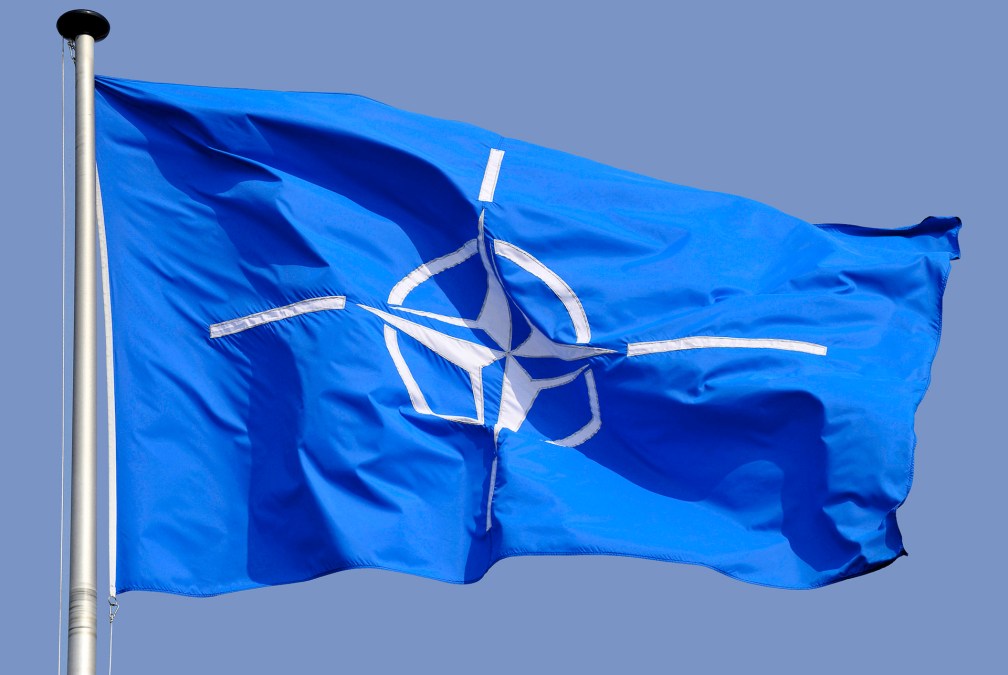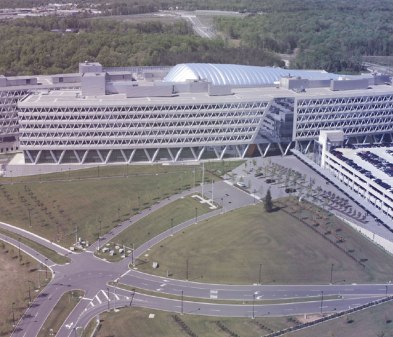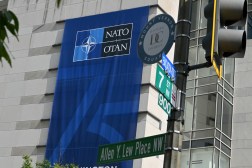Artificial intelligence experts helping NATO with new ‘horizontal scanning’ initiative

Editor’s note: This story was updated with comments from NATO.
More than 80 artificial intelligence experts from the U.S. and other nations are helping NATO explore the military implications — and opportunities — for leveraging the technology.
NATO’s Science and Technology Organization (STO) and the NATO Communications and Information (NCI) Agency jointly hosted a workshop earlier this month in the Hague, Netherlands, marking the launch of a new strategic initiative to bolster the alliance’s AI approach.
“AI is one of the key emerging and disruptive technologies identified by NATO as vital for the maintenance of its technological edge,” NATO Chief Scientist Dr. Bryan Wells said in a press release Monday. “By working together, the STO and the NCI Agency are able to bring together global experts to ensure the very best scientific expertise is available to advise NATO and its Allies and Partners on the latest scientific trends in this area.”
AI scientists, ethicists and military operational experts — from across Europe and North America — participated in the workshop. The AI experts also met with NCI Agency scientists and engineers at the agency’s lab based in the Netherlands, where they observed demonstrations of how artificial intelligence systems can be trained using NATO data to confront existing challenges, and several existing projects affiliated with the alliance’s different communities.
“One example is the Resilience Assessment Project funded by Allied Command Transformation, a tool to assess resilience in seven key areas that NATO has defined, such as transportation, energy, communications, and others,” NCI Agency Chief of Data Science and AI Dr. Michael Street told FedScoop in an email on Tuesday.
That project is based on open-source data from a wide variety of sources and is being developed in close collaboration with the end-users and subject matter experts, he explained. It enables users to better assess situations and conduct “what if” analyses to understand the impact of crises.
“For example, the tool is being used to support exercises to understand the state of critical infrastructure and points of interest such as road networks or energy supplies,” Street said.
The core tasks of the transatlantic military alliance between the U.S., Canada and 28 European nations involve collective defense, crisis management and cooperative security.
The organization’s defense ministers officially signed on to an AI strategy in October, formalizing their intent to accelerate NATO’s collective adoption of the technology, ensure it is deployed responsibly, and protect against threats it might pose. Building on that effort, the AI experts participating in the recent invite-only multinational workshop kicked off a strategic initiative to drive AI-focused “horizon scanning” — a methodology for performing comprehensive assessments of possibilities and threats connected to a particular technology or other topics.
The new NATO initiative employs aeronautical scientist Theodore von Kármán’s “foundational principle to bring armed forces and scientific personnel closer together to enhance collective knowledge and understanding,” according to the press release. Such scans examine the state-of-the-art in the field, the outlook for the next decade, its relevance for the armed forces, potential avenues for investment, and more.
They have also been undertaken on laser weapons, quantum technologies and optronic 3D imaging systems.
“Horizon scanning allows us to bring together technology experts and military leaders to define the medium-to-long term activities to fully benefit from a technology, such as artificial intelligence in this case,” Street said. “This NATO strategic initiative employs Von Karman horizon scan methodology to understand the impact of technology on defense, and vice versa.”
Following the workshop, a group of experts from across the alliance will continue to work on these issues over the remainder of the year.
“They will prepare a set of recommendations on how AI-based technologies could be further developed and applied for NATO use, and how defense use can contribute to AI development. The recommendations will be delivered to the NATO Science and Technology Board, the highest authority within the Science and Technology Organization,” Street confirmed.






